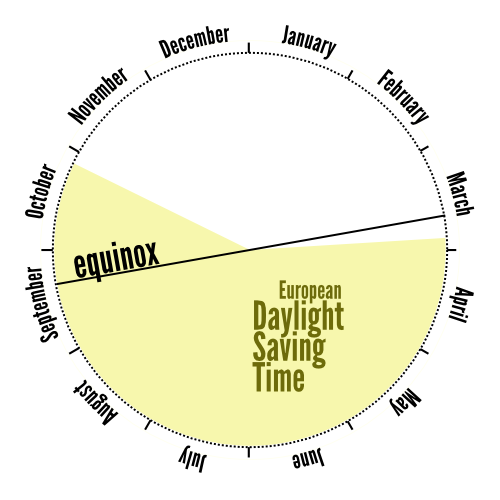Intro
I’ve happened to be the organizer of LSG 2010. While I had often been helping to organize various types of events, I’d used to be just a grunt dragging the heavy boards around. LSG 2010 was my first time doing high level organization. Perhaps it’s time to reflect on it a little.
Before LSG
First, I fought hard for getting access to the lsg.go.art.pl domain without success (big no thanks to PSG for that). That greatly hindered my initiative to organize LSG. Actually, I almost gave up. What can you do when you don’t even have the domain that has been used for many years and everyone knows about it? They just redirected lsg.go.art.pl to some PSG site, which didn’t even bother to link LSG 2010 site.
I decided not to give up when Jacek, the owner and manager of Alaska, contacted me and proposed that we could organize it together. He was taking care of accommodation, food, money and non-go side events. I was taking care of everything go-related.
I thought many people would never find out without access to the official site, but I underestimated two factors: word of mouth and Benerit. The first doesn’t need much explanation. The second one – Benerit – was responsible for even more. He not only answered questions from people about why there’s no LSG site and redirected them to the new one, but also sent an email to everyone who has ever attended LSG. Combined, this led to almost everyone knowing, though some people found out too late.
Jacek handled registration. Artur would be taking care of the “other board games” part of LSG. Myszcz promised to help with tournament organizing in return for free accommodation and food. Kamyk helped organize the playing material. Two weeks before the start, Hajin wrote she’d come as a teacher. I got lucky.
LSG itself
I came to Alaska on Saturday, two days before the start. Kamyk wasn’t too sure how much material was coming from there, but in the end it ended up really well (we weren’t missing anything). It turned out that Myszcz wasn’t all that experienced with tournament organizing, which led to Kamyszyn joining our organizing team. I couldn’t be happier about that – having Kamyszyn organize the tournaments meant that I wouldn’t have to worry at all.
As for teaching, aside from miss Hajin [3p], who was the main teacher, we got plenty of volunteers. Among them were Jun Tarumi [5d] with unforgettable lecture about fully cut keimas, Leszek Sołdan [5d] the Polish champion, and myszcz [1d] the Chinese opening expert. I only had one lecture, and as fisz was ready to help me, we played an “open” game – playing on the magnetic board and immediately explaining what we were thinking about. I think it was quite a success.
I scheduled 4 rounds of simultaneous games, which is quite a lot considering the whole event lasted practically only 11 days. I think that was a good decision, as everyone wanted to play against Hajin. The first simul was Hajin, Jun, fisz and me playing together against everyone else. It was a lot of fun (and we won most our games!). The other three rounds of simuls were individual, with each of us getting 6-8 opponents. I found out I got very weak in simultaneous games.
Tournaments were a bit painful in the beginning, but we managed to improve the process quite a lot – instead of running to the shop whenever anything needed to be printed, we simply used a projector to display the pairings and other information. I say simply, but it took 6 hours of hard work to get everything needed for the projector to be set up the way I needed. After that, Kamyszyn and Myszcz were handling tournaments themselves – I didn’t even have to be there. There was no one shouting “RUNDA” but nevertheless, most people got to play their games. No one was forced to play in the tournaments - participation was completely voluntary.
After the initial confusion, which was really tiring for me personally, my workload suddenly became much lighter. Aside from creating the daily schedule and making sure that our whole organizing team was on the same page, I didn’t have much concrete work to do. Except for solving emergencies, answering complaints, and responding to the same question 100 times a day (I swear it was the same 5 people asking all the questions, repeatedly).
I didn’t micro-manage and did let people help me, which worked out pretty well (because the people helping were awesome). Aside from volunteer teachers mentioned above, we had even volunteer organizers. Ela organized shooting tournament and drew the board for LSG 2010 signatures. Fisz organized volleyball and ping-pong tournaments. Kotasia made the torus tourney. I’m sure there’s many events I forgot. :)
Aftermath
There were no major disasters. Worst thing that’s happened is that I left two boards with two ING clocks (cough, good riddance, cough) outside overnight. They were pretty much gone after it had been raining throughout the whole night.
Beers and other small stuff were getting lost, but we never found out who did it. People have started locking down their houses.
All the people who brought playing material left after one week. Jacek, Kamyk and volunteers are making sure the material doesn’t get lost after LSG. Some of it might stay at Alaska.
Thanks
I was told that I should thank PSG. Organizing Polish summer go school is Polish Go Association’s job. That PSG failed to do so and a Czech guy living in the Netherlands had to help is surprising. Well, I’d like PSG to thank me first for doing their job. Whatever. Thanks to PSG for paying for Hajin’s stay and for most generously allowing their playing material to travel to Przystanek Alaska.
Big thanks goes to Jacek, Mariola, and Alaska team for organizing accommodation and meals, to Hajin for coming (and to Korean Baduk Association for paying her flight) and teaching, to Joon, Leszek, myszcz and fisz for helping with teaching; to kamyszyn, myszcz, Artur, Ela and kotasia for tournaments; to Janusz Kraszek for a box of prizes, to Kamyk and other people for making sure we have the playing material and to everyone else who helped make LSG a success!
Summary?
It’s easy to organize something when you have the right people to help you.
I think everyone had fun at LSG, that’s what matters the most in the end.
Bonus: Photos!
You made it! Either you’ve read through (doubtful) or you scrolled down here or you got the magical link… anyway, here goes!
I’m not quite sure if there’s a public list of all photo galleries from LSG 2010, so I’ll create one here:
As for my gallery, it’s nothing amazing, but it’s still pretty decent by my standards. The pics I like the most are: 1, 5, 10, 12, 32, 33, 35, 58, 61, and 64.
If you know about any gallery missing, please do leave a comment!
















































